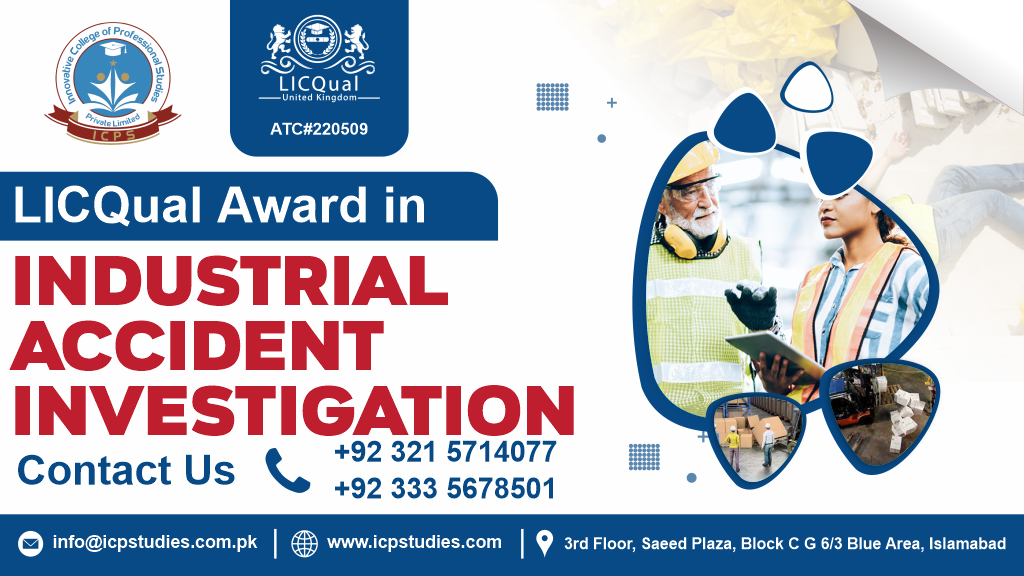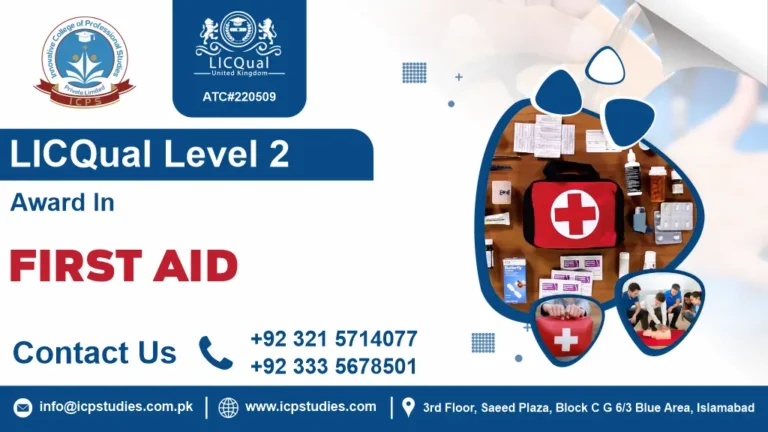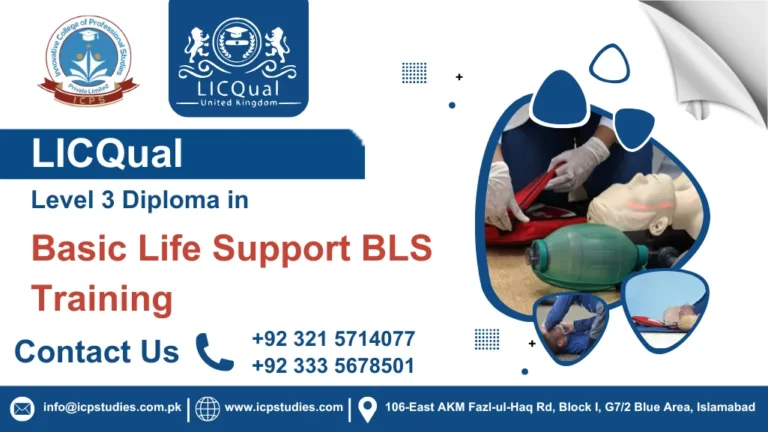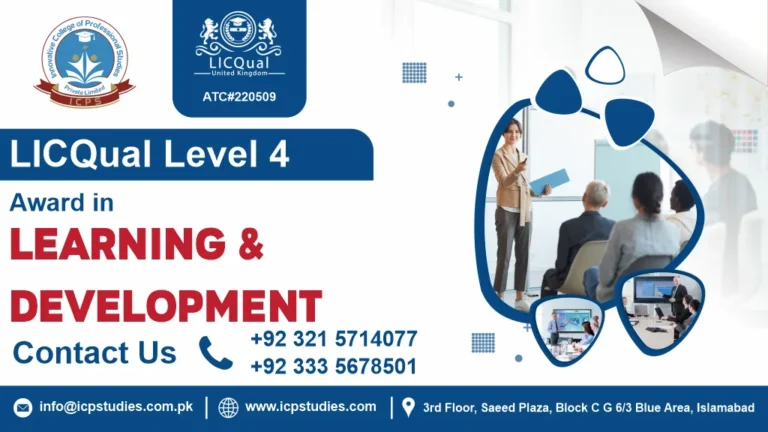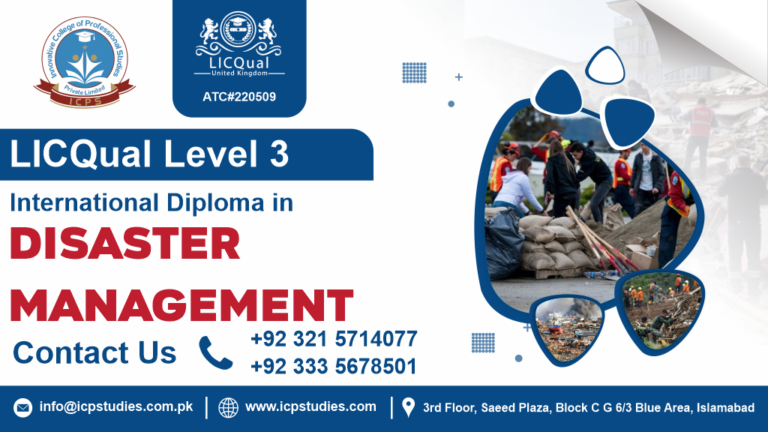The LICQual Award in Industrial Accident Investigation covers all aspects of accident investigation, from understanding root cause analysis techniques to conducting thorough incident reconstructions. You’ll gain a deep understanding of the principles and methodologies essential for uncovering the underlying causes of industrial accidents.
This award goes beyond theory, providing hands-on training in real-world accident investigation scenarios. You’ll learn how to collect evidence, interview witnesses, analyze data, and develop actionable recommendations to prevent future accidents. With practical exercises and case studies, you’ll build the skills needed to excel in accident investigation roles.
Our experienced instructors bring years of industry experience to the classroom, providing invaluable insights and guidance throughout your learning journey. You’ll benefit from their expertise as they share best practices, real-world examples, and practical tips for conducting effective accident investigations.
The LICQual Award in Industrial Accident Investigation is widely recognized and respected by employers in various industries. By earning this qualification, you’ll demonstrate your commitment to workplace safety and position yourself as a valuable asset to any organization.
Don’t wait until an accident occurs to prioritize workplace safety. Invest in your professional development and Enroll now in the LICQual Award in Industrial Accident Investigation today. Join a community of safety champions who are committed to preventing accidents and protecting lives. Your journey to safety excellence starts here!
All About Award in Industrial Accident Investigation
Course Overview
The LICQual Award in Industrial Accident Investigation is a specialized qualification designed to provide individuals with the knowledge, skills, and techniques necessary to conduct thorough and effective investigations into industrial accidents. LICQual, short for Learning, Improvement, and Competence Qualifications, is an organization that offers a range of accredited training programs focused on workplace safety and professional development.
This particular award focuses specifically on the investigation of accidents that occur within industrial environments, such as factories, manufacturing facilities, construction sites, and warehouses. Industrial accidents can have serious consequences, including injuries, fatalities, property damage, and disruptions to operations. Therefore, it is essential for organizations to have trained professionals who can investigate accidents promptly and accurately to determine their causes and implement measures to prevent similar incidents in the future.
Studying strategies for preventing future accidents, including implementing safety improvements, providing training and awareness programs, and fostering a culture of safety within the organization.
The LICQual Award in Industrial Accident Investigation is typically targeted towards individuals who have responsibilities for health and safety within their organizations, including health and safety managers, safety officers, risk assessors, supervisors, and members of safety committees. By completing this qualification, individuals demonstrate their competence in accident investigation and their commitment to ensuring a safe and healthy work environment for all employees.
Overall, the LICQual Award in Industrial Accident Investigation plays a vital role in equipping professionals with the skills and knowledge needed to investigate industrial accidents thoroughly, identify root causes, and implement effective preventive measures to mitigate risks and enhance workplace safety.
Study Units
Learning Outcomes
Here are the outcomes for each of the study units:
- Introduction to Industrial Accident Investigation:
- Understand the purpose and objectives of accident investigation in industrial settings.
- Identify the importance of prompt and thorough accident investigation.
- Familiarize with the basic principles and methodologies of accident investigation.
- Legal and Regulatory Aspects of Accident Investigation:
- Gain knowledge of relevant laws, regulations, and standards governing accident investigation in industrial environments.
- Understand legal obligations and responsibilities of employers, employees, and regulatory authorities in the context of accident investigation.
- Learn how to comply with legal requirements and maintain adherence to industry standards throughout the investigation process.
- Incident Scene Preservation and Evidence Collection:
- Learn techniques for securing and preserving accident scenes to prevent contamination or loss of evidence.
- Understand the importance of documenting and photographing the accident scene effectively.
- Gain proficiency in collecting physical evidence and maintaining chain of custody to ensure its integrity.
- Effective Interviewing Techniques for Witnesses and Employees:
- Develop skills in conducting structured interviews with witnesses and employees involved in accidents.
- Learn how to establish rapport, ask open-ended questions, and actively listen to gather relevant information.
- Understand ethical considerations and best practices for conducting interviews in a sensitive and respectful manner.
- Root Cause Analysis in Industrial Accidents:
- Gain an understanding of various root cause analysis techniques used to identify underlying causes of industrial accidents.
- Learn how to apply methods such as the “5 Whys,” fault tree analysis, and fishbone diagrams to analyze causal factors.
- Develop critical thinking skills to differentiate between immediate causes and systemic issues contributing to accidents.
- Human Factors in Industrial Safety:
- Explore the role of human factors in industrial accidents, including human error, behavior, and performance.
- Understand how factors such as fatigue, stress, communication breakdowns, and organizational culture can influence safety outcomes.
- Learn strategies for mitigating human factors-related risks and promoting a culture of safety within the organization.
- Accident Investigation Report Writing:
- Develop the ability to compile comprehensive accident investigation reports that clearly document findings, conclusions, and recommendations.
- Learn how to structure reports effectively, including executive summaries, descriptions of events, analysis of causes, and proposed preventive measures.
- Gain proficiency in communicating investigation results to stakeholders in a clear, concise, and professional manner.
- Preventive Measures and Safety Improvement Strategies:
- Identify preventive measures and safety improvement strategies based on findings from accident investigations.
- Learn how to prioritize and implement corrective actions to address root causes and prevent recurrence of accidents.
- Understand the importance of ongoing monitoring and evaluation to assess the effectiveness of preventive measures and drive continuous improvement in safety performance.
Admission Criteria
here are the entry requirements for the Award in Transportation Accident Investigation course:
- Educational Background:
- Applicants should hold a minimum of a high school diploma or equivalent qualification.
- A bachelor’s degree or higher in a relevant field (e.g., engineering, forensic science, transportation management) is preferred but not mandatory.
- Professional Experience:
- While prior experience in transportation accident investigation is not required, candidates with relevant experience in fields such as law enforcement, engineering, safety management, or transportation operations may have an advantage.
- Applicants should demonstrate a keen interest in accident investigation and a commitment to enhancing their skills in this area.
- Language Proficiency:
- Proficiency in the language of instruction (typically English) is essential to successfully complete the course.
- Non-native English speakers may be required to provide evidence of language proficiency through standardized tests such as the TOEFL or IELTS, or by demonstrating proficiency through other means.
- Technical Skills:
- Basic computer literacy and proficiency in using office software (e.g., Microsoft Word, Excel) are recommended, as course materials and assessments may be delivered electronically.
- Familiarity with data collection tools and software commonly used in accident investigation (e.g., GPS devices, accident reconstruction software) is advantageous but not mandatory.
- Commitment and Availability:
- Applicants should be able to commit to the duration of the course and actively participate in all required activities, including lectures, practical exercises, and assessments.
- Access to a reliable internet connection and suitable hardware (e.g., computer, smartphone, or tablet) is necessary for accessing course materials and participating in online activities.
- Professional Conduct:
- Applicants must demonstrate professionalism, integrity, and ethical conduct throughout the application process and course duration.
- Any history of unethical behavior or criminal convictions related to dishonesty or integrity may disqualify candidates from admission to the course.
- Additional Requirements:
- Some institutions or accrediting bodies may have specific eligibility criteria or additional requirements for admission to the course. Applicants should carefully review all application guidelines and instructions provided by the course provider.
By meeting these entry requirements, applicants can ensure they are well-prepared to embark on a rewarding journey in transportation accident investigation and make a meaningful contribution to enhancing transportation safety.
Ideal Candidate
The LICQual Award in Industrial Accident Investigation is tailored for professionals working in industrial environments who are tasked with ensuring workplace safety and managing risk. This course is designed to benefit a wide range of individuals, including:
- Health and Safety Managers: Professionals responsible for overseeing health and safety practices within industrial settings, including implementing accident prevention measures and conducting incident investigations.
- Safety Officers and Coordinators: Individuals tasked with monitoring workplace safety compliance, conducting safety audits, and coordinating safety training programs for employees.
- Risk Assessors and Managers: Professionals involved in identifying and assessing risks associated with industrial operations, including evaluating potential hazards and implementing risk mitigation strategies.
- Occupational Health Professionals: Personnel responsible for promoting employee health and well-being in industrial workplaces, including managing occupational health programs and conducting health assessments.
- Industrial Engineers: Engineers involved in designing, implementing, or managing industrial processes and systems, including assessing safety risks and ensuring compliance with safety regulations.
- Incident Investigators: Individuals responsible for investigating industrial accidents, near misses, or other safety incidents to determine their causes and recommend preventive measures.
- Supervisors and Team Leaders: Frontline supervisors and team leaders responsible for overseeing day-to-day operations in industrial settings, including promoting safety awareness and enforcing safety protocols among employees.
- Regulatory Compliance Officers: Professionals responsible for ensuring compliance with relevant laws, regulations, and industry standards governing workplace safety in industrial environments.
- Consultants and Advisors: Safety consultants, advisors, or auditors who provide expert guidance and support to industrial organizations in developing and implementing safety management systems and accident prevention strategies.
- Anyone Interested in Advancing Their Career in Safety Management: Individuals seeking to enhance their knowledge and skills in industrial accident investigation and workplace safety to advance their careers and pursue opportunities for professional growth and development.
Overall, the LICQual Award in Industrial Accident Investigation is designed to meet the needs of professionals across various industries who are committed to promoting safety, preventing accidents, and protecting the well-being of workers in industrial settings.
FAQs about Award in Industrial Accident Investigation

